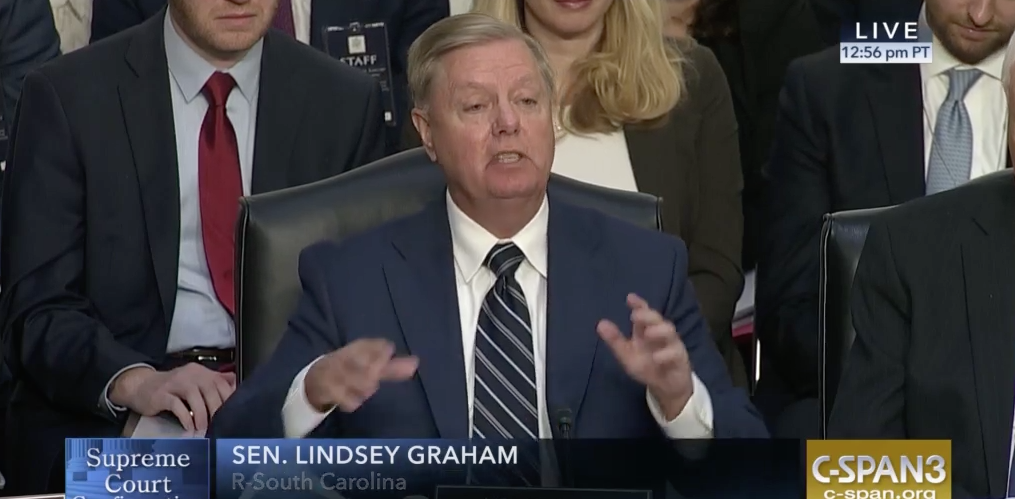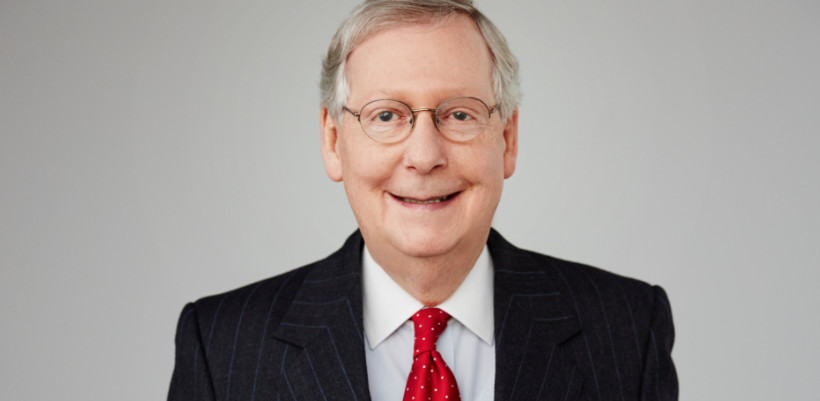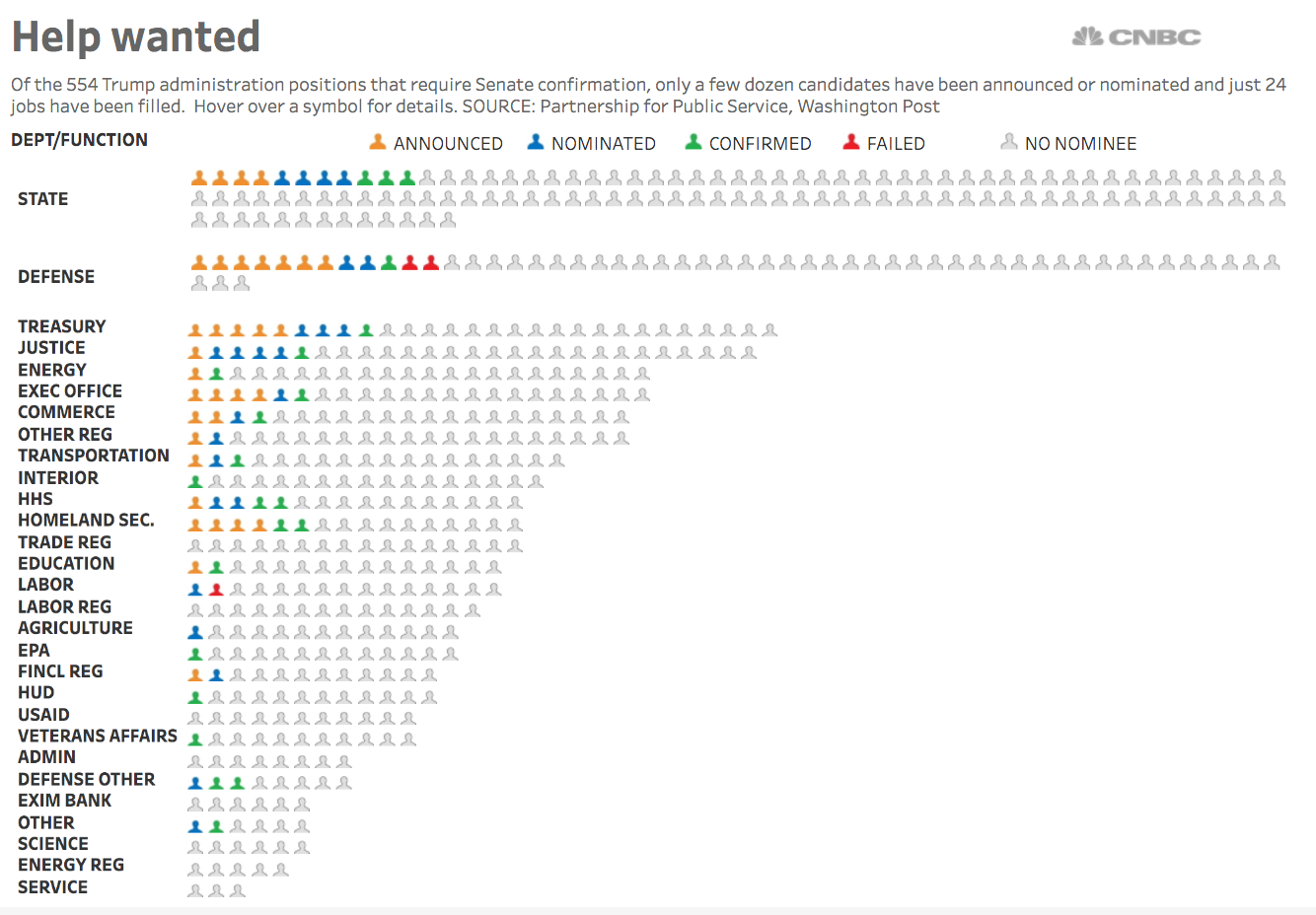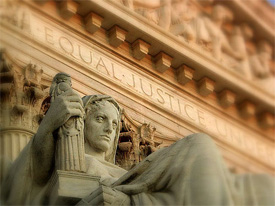On Friday, Jonathan Rauch published a god-awful argument for pardoning Trump. Today, Quinta Jurecic published a much better argument that a Truth Commission would be the ideal way to hold Trump accountable, but because that probably won’t work, we need to pursue other alternatives, including prosecution.
I’ve already laid out one reason why I think we need to prosecute Trump for his role in the insurrection: because if we don’t, it’ll hamper the ability to hold dangerous people accountable. Another reason is that so many defendants are excusing their actions because the then-President ordered them to storm the Capitol (indeed, that’s one reason, according to a new WaPo report, why DOJ might not charge some of the insurrectionists), the government must make it clear that order was illegal.
Still, I think there are solutions to the problem that both Rauch and Jurecic want to resolve: how to find accountability without derailing President Biden’s Administration.
Jurecic acknowledges that Republican resistance to accountability measures will exacerbate current political divisions.
[A] post-Trump investigation pursued along partisan lines could be doomed from the start. This is the irony: The exact conditions that led to and sustained the Trump era—white grievance, a polluted media ecosystem, and political polarization—are the same conditions that will likely prevent a truth commission from succeeding.
[snip]
In the short run, any of these measures could risk making the country’s social and political divisions worse.
Rauch argues that prosecutions will derail the Biden Administration.
If we want Biden’s presidency to succeed, accountability to be restored and democracy to be strengthened, then a pardon would likely do more good than harm.
Consider, first, Biden’s presidency.
Biden has made clear in every way he can that he does not want or intend to be President Not Trump. He has his own agenda and has been impressively disciplined about not being defined by opposition to Trump. He knows Trump will try to monopolize the news and public discourse for the next four years, and he needs Trump instead to lose the oxygen of constant public attention.
Legal proceedings against Trump, or even the shadow of legal proceedings, would only keep Trump in the headlines.
Rauch also argues (fancifully, for precisely the reasons Jurecic gives that a Truth Commission would be undermined by polarization) that a non-criminal counterintelligence investigation will succeed in a way criminal investigations won’t.
It is important, then, that Trump’s presidency be subjected to a full-scale, post hoc counterintelligence scrub. There should be a public element, modeled on the 9/11 commission, and also a nonpublic, classified element. Both elements could be complicated and hindered by the criminal investigation of Trump. The criminal and counterterrorism investigations would need to be continually deconflicted; Congress would be asked to back away from inquiries and witnesses that step on prosecutors’ toes; Trump himself could plead the Fifth Amendment—an avenue not open to him were he to accept a pardon.
Ignoring for the moment the necessity of including Trump in an investigation into January 6, I agree that, to the extent possible, there needs to be some kind of accounting of what happened during the Trump Administration without turning it into partisan warfare.
Here are some ways to contribute to doing that.
Drain the swamp
Investigations into Trump for things that either are already (Russia or Ukraine) or can be (the election) turned into a tribal issue will absolutely exacerbate political division.
But there are some topics where former Trump supporters can quickly be shown how he hurt them.
For example, an inquiry into Trump’s trade war, especially into the harm done to farmers, will provide a way to show that Trump really devastated a lot of the rural voters who, for tribal reasons, nevertheless support him.
Or Trump’s grifting. In the wake of the Steve Bannon pardon, a number of Trump supporters were furious that Bannon was pardoned for cheating them, even while rioters or other more favored pardon candidates were not. Bannon’s not the only Trump grifter whose corruption demonstrably hurt Trump voters. There’s Brad Parscale’s grifting. There’s Jared Kushner’s favoritism in COVID contracting, which made the country less safe. There’s PPP abuse by big corporations at the expense of small businesses. None of this has to be explicitly about Trump; it can instead be an effort to crack down on corruption generally which by its very nature will affect Trump’s flunkies.
Have Trump dead-enders approve charges
With the exception of some egregious US Attorneys, Biden has asked the remaining US Attorneys to stay on for the moment. That defers any political blowback in the case of John Durham (who in addition to being CT US Attorney is also investigating the Russian investigation) and David Weiss (who is investigating Hunter Biden).
But it also allows people who are nominally Trump appointees to preside over at least the charging of existing investigations targeting Trump or his flunkies. The one place this is known to be true is in Southern District of New York (where Rudy is being investigated). It might be true in DC US Attorney’s office (though Billy Barr shut a lot of investigations, including into Roger Stone and Erik Prince, down). There’s Texas, where Ken Paxton is under investigation.There were hints of investigations into Jared in Eastern District of New York and, possibly, New Jersey.
If Trump US Attorneys aren’t replaced before they charge Trump or his allies, then the act of prosecution will be one approved by a Trump appointee.
Give Republicans what they think they want
Because they’re gullible, Republicans believe that the record of the Russian investigation shows corruption. What is in fact the case is that a cherry-picked and selectively-redacted set of records from the Russian investigation can be gaslit to claim corruption.
But since they’ve been clambering for Trump to declassify it all (even while both John Ratcliffe and Andrew McCabe have suggested that might not show what Republicans expect), it gives Biden’s Administration a way to declassify more. For example, there’s at least one Flynn-Kislyak transcript (from December 22, 2016) that Trump’s Administration chose not to release, one with closer Trump involvement then the others. There are materials on Alex Jones’ interactions with Guccifer 2.0. There are Peter Strzok notes showing him exhibiting no ill-will to Mike Flynn. There are records regarding Paul Manafort’s interactions with Konstantin Kilimnik on April 2016. That’s just the tip of an iceberg of very damning Russian-related records that Trump chose not to release, but which GOP demands for more can be used to justify.
Fully empower Inspectors General
One particularly absurd part of Rauch’s piece is his claim that we know all of Trump’s criminal exposure.
If he committed crimes that we don’t already know about, they are probably not of a new kind or magnitude.
As for what we do know about, it seems clear that he committed criminal obstruction of justice, for example by ordering his White House counsel to falsify federal records. But his obstruction was a process crime, already aired, of limited concern to the public and hard to get a conviction on as a stand-alone charge. There might be more to the Ukraine scandal than we know, but that matter, too, has been aired extensively, may not have been a legal violation and was appropriately (if disappointingly) handled by impeachment. Trump might have committed some form of sedition when he summoned his supporters to the streets to overturn the election, but he would have a colorable First Amendment defense, and sedition is a complicated and controversial charge that would open a legal can of worms. The real problem with Trump is not that we do not know his misdeeds but that we know so much about them, and yet he remained in office for a full term.
One piece of evidence Rauch is mistaken is his certainty that Trump’s only exposure in the Russian investigation is regarding obstruction, when (just as one example) there’s an ongoing investigation into an Assange pardon that appears to be closer to a quid pro quo; or the closed investigation into a potential bribe from Egypt. Democrats were denied a slew of documents pertaining to the Ukraine scandal, especially from the State Department. Democrats were similarly denied records on Trump’s abuse of clearance and non-official records.
One way to deal with the outstanding questions from the Trump Administration is simply to fully staff and empower the Inspectors General who have been undermined for four years. If, for example, State’s IG were to refer charges against Mike Pompeo or DOD’s IG were to refer charges pertaining to Kash Patel’s tenure, it wouldn’t be Democrats targeting them for investigation, it would be independent Inspectors General.
DOJ must be a key part of this. DOJ’s IG has already said it is investigating BJ Pak’s forced resignation. Democrats should insist this is expanded to review all of Barr’s politicized firings of US Attorneys.
As part of an effort to make sure Inspectors General do the work they should have done in real time, Biden should support the end of the OPR/IG split in DOJ, which means that the decisions of lawyers at DOJ (including those pertaining to the Ukraine scandal) are only reviewed by inspectors directly reporting to the Attorney General.
Respect FOIA
Joe Biden might not want to focus on Trump. But the press will continue to do so.
And if Biden orders agencies to treat FOIA like it is supposed to be treated, rather than forcing the press to sue if they want anything particularly interest, the press will do a lot of the accountability that courts otherwise might (and might provide reason for prosecutions). The press already has FOIAs in that have been undermined by improper exemption claims. For example, Jason Leopold has an existing FOIA into Bill Barr’s interference into the Roger Stone and Mike Flynn prosecutions. American Oversight has a FOIA into why Paul Manafort was sprung from jail when more vulnerable prisoners were not. FOIA into Trump’s separation policies have been key at reuniting families.
If such FOIAs obtained more visibility than they currently do, it would provide the visibility into some of the issues that people would love criminal investigations into.
One of the biggest scandals of the Trump Administration is how he undermined normal institutions of good governance, especially Inspectors General. If those institutions are restored and empowered, it will likely do a surprising amount of the accountability work that is so badly needed.







